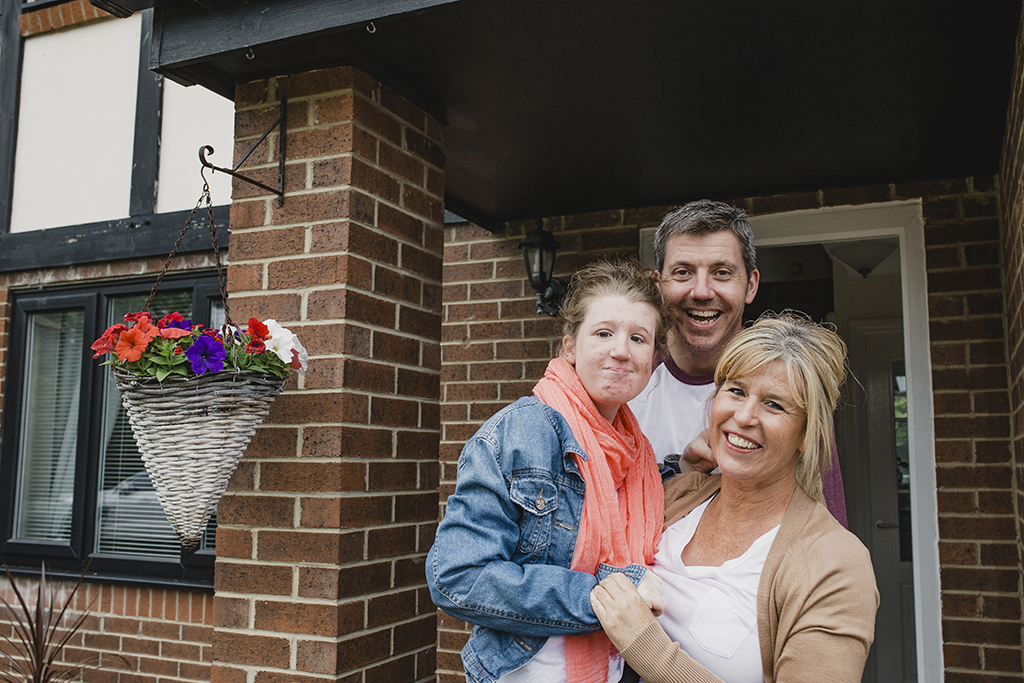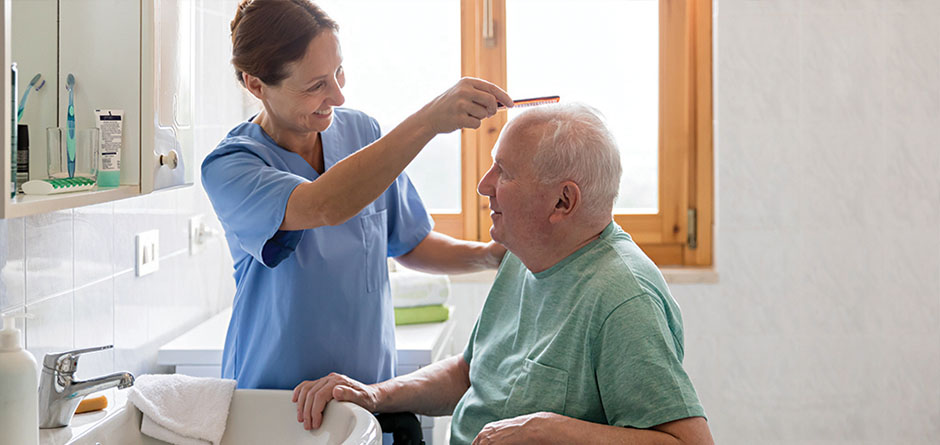Shopping for home care for yourself or a loved one? A quick Google search will tell you that there are hundreds of home healthcare agencies out there. With so many options, how does one choose? Here is list of questions designed to help you conduct your own research and discover the best home healthcare fit for you or your loved one.

1. Is the home care agency licensed?
Some states require home care agencies to have a business license, while other states don’t. Knowing whether a home healthcare agency is licensed is a good way to know what rules they follow, if any. In some states, the agency simply pays a fee to become licensed, while in other states there are certificates of need and a cap on the number of home care providers that can operate in each county. The best way to find out is to ask.
At Maxim Healthcare Services, our offices prominently display their licenses on the wall. Check your state government’s health department website to find out the rules in your area.
2. Is the home care provider accredited by a leading national organization?
The Accreditation Commission for Health Care (ACHC) has strict requirements around patient care quality, safety and oversight. If a home care agency has this accreditation, you can presume that they will provide a high level of care. If you live in a state with lenient rules like no license requirement, then accreditation is especially important. For example, perhaps your state doesn’t require home caregivers to have CPR certification, but the ACHC does.
3. Are the home caregivers supervised and evaluated by a registered nurse?
Clinical supervision is an important quality checkpoint in home care. It ensures that a patient is actually receiving the prescribed care at home as it is stated in documentation. The clinical supervisor is an experienced registered nurse responsible for providing caregiver oversight and case management for patients. Clinical supervisors review patients’ documents to make sure everything is correct, and act as a second set of eyes to verify that everything is going well and there is good communication.
4. Does the home care agency perform criminal background checks on caregivers prior to hiring?
It helps to know that a home healthcare agency has done the work of running background checks on employees who will be coming into your home. Some companies thoroughly vet their caregivers by checking for whether a person has a record of committing felony, theft, fraud, sex offenses and other serious charges. Some national companies also check to see if a person has a negative employment history anywhere across the U.S.
5. Are the caregivers covered by workers’ compensation in the event that they are injured on the job?
Sometimes people looking for home care consider hiring a caregiver independently because of the added cost of working with an agency. This may seem like a good way to save money, but it puts you at risk. Established home care agencies are fully insured and bonded to cover important things like worker’s compensation. This is so that if a caregiver is injured while providing care in your home, you are not responsible for covering the medical bills.
6. Is the home care agency responsible for deducting state, federal, local and Social Security taxes from the caregivers’ wages?
A reputable home healthcare agency will handle payroll for its employees, including required deductions. This is so you don’t have to worry about things like tax fraud.
7. Does the agency send a registered nurse to meet my family and me, and develop a plan of care for home caregivers to follow?
The plan of care is like the road map that guides everyone. The patient’s physician drives the personalized care plan and directs the nursing staff. In home care, this works best when the nurse, patient and family get together to get everyone on the same page with their role in the care plan. It could be a simple thing, such as the patient likes to have his medication between 8 and 10 am. From that point, home caregivers follow the care plan, and a registered nurse supervises by checking the plan notes to ensure it is followed and that care is documented appropriately.
8. Does the agency require the caregivers to carry photo identification?
Carrying a photo ID is required by the Accreditation Commission for Health Care (ACHC). It’s good practice to ask home caregivers to show identification – established home care agencies provide their caregivers with a photo ID badge that includes the company’s logo so that you can be sure the person is who they say they are.
9. If I am dissatisfied with my caregiver, can I request a replacement?
Some places will not allow you to request another caregiver if you are not satisfied. But a good home care provider allows you to request a different person and will make the change if you are not satisfied for any reason. With that said, nurses don’t exactly grow on trees; if you request a new nurse frequently, then there may be days where you or your loved one goes without care because the office staff needs to identify and coordinate a replacement. The bottom line is that this is your home, and you have the right to say who comes into your home.
10. Does the provider keep a “log book” in my home to document services performed (meals, activities, bathing, etc.)?
Most home care agencies use paper charts to document care. It’s important for the caregiver to maintain an updated chart in your home so that you and your family can review the notes and orders. This is so that everyone can be aware of what is happening with the patient. If there is a change in a patient’s status or a change in the care plan, everyone needs to be aware for quality and safety reasons.
11. Does the home care agency offer overnight and/or 24-hour care?
Not all companies offer round-the-clock care. Depending on what kind of care you’re looking for, it’s important to go with a home care agency that doesn’t take days off – that’s caregivers and office staff. You want a provider that will be there for you 24/7, 365 days a year so that you or your loved one don’t go without care and have your needs met.
Now that you’re up to speed on what questions to ask a home care agency, remember that all home healthcare providers are not the same. It’s important to do your research to ensure that you find a home care agency that is the best fit for you and your loved ones.
Maxim Healthcare Services is here for you when you’re ready! Learn more.





